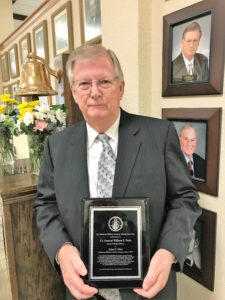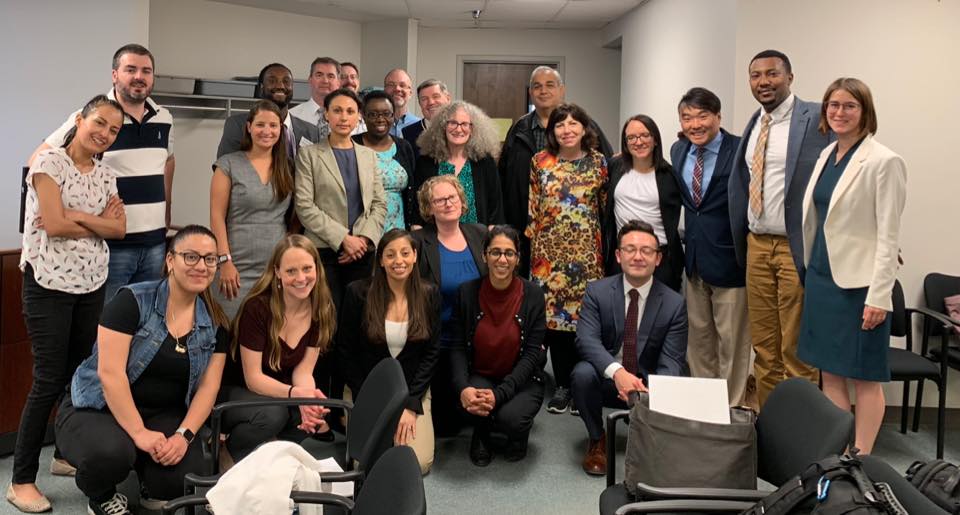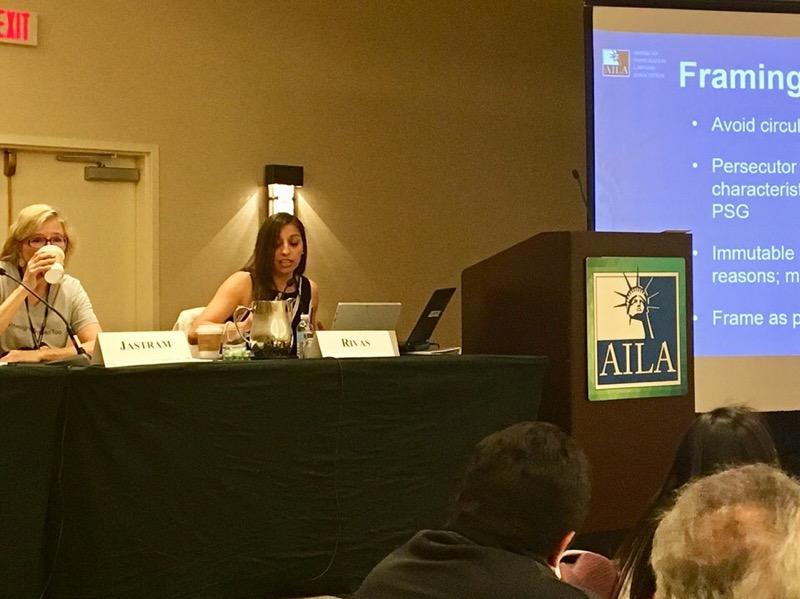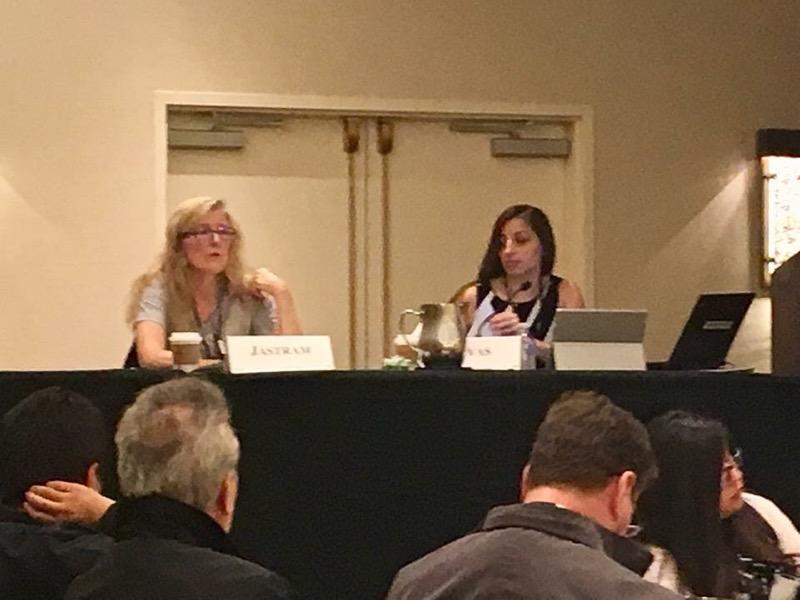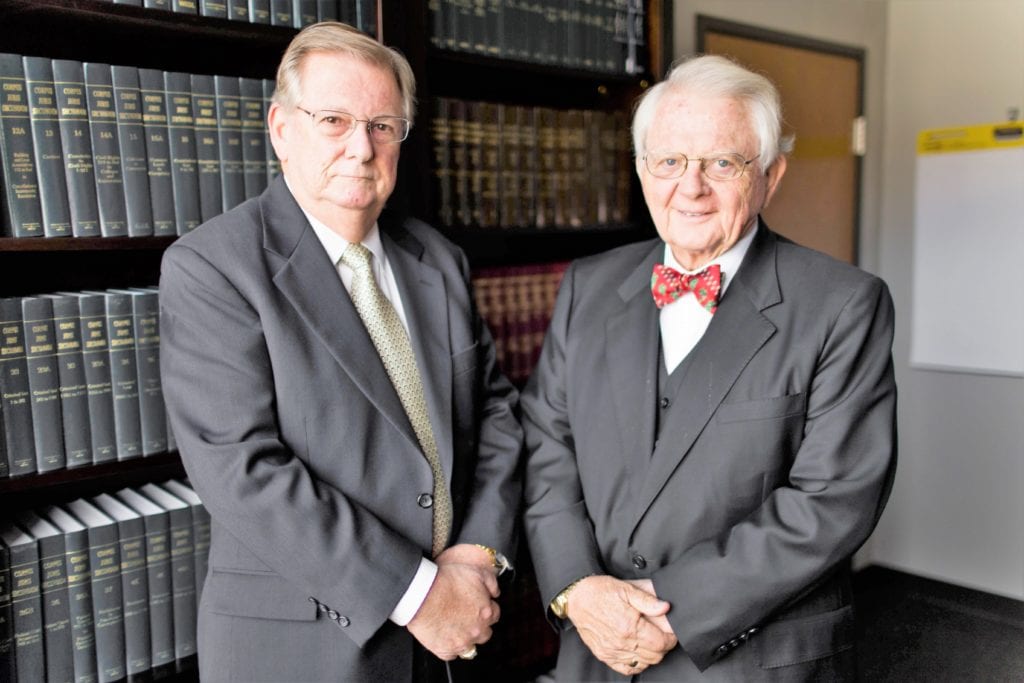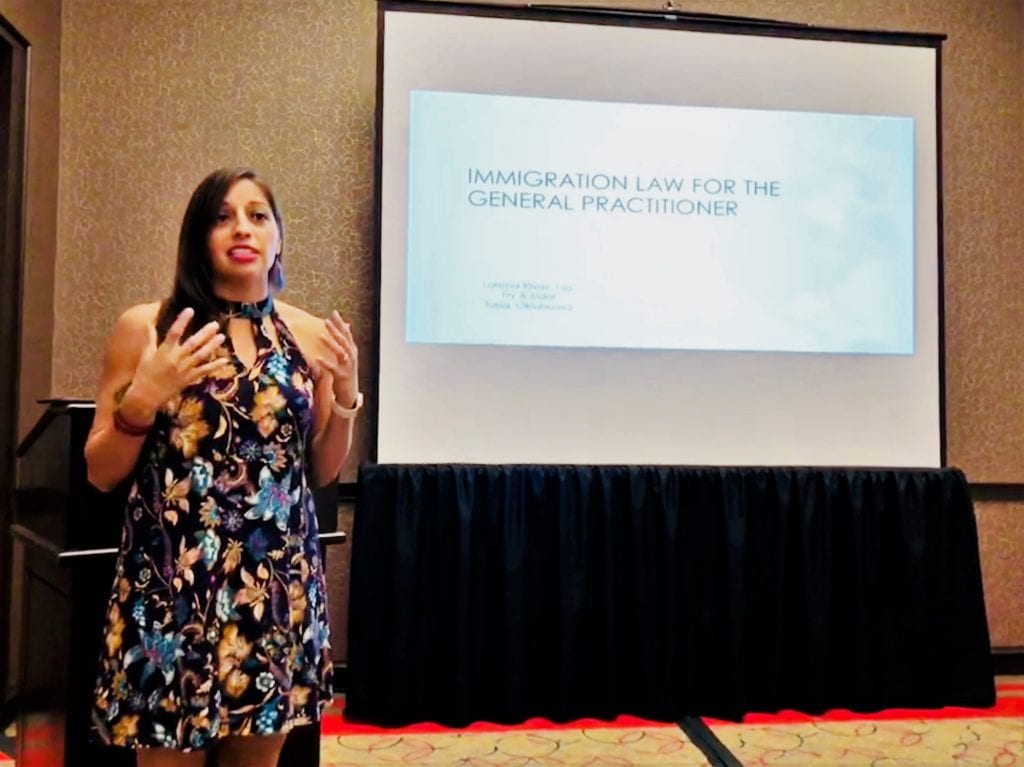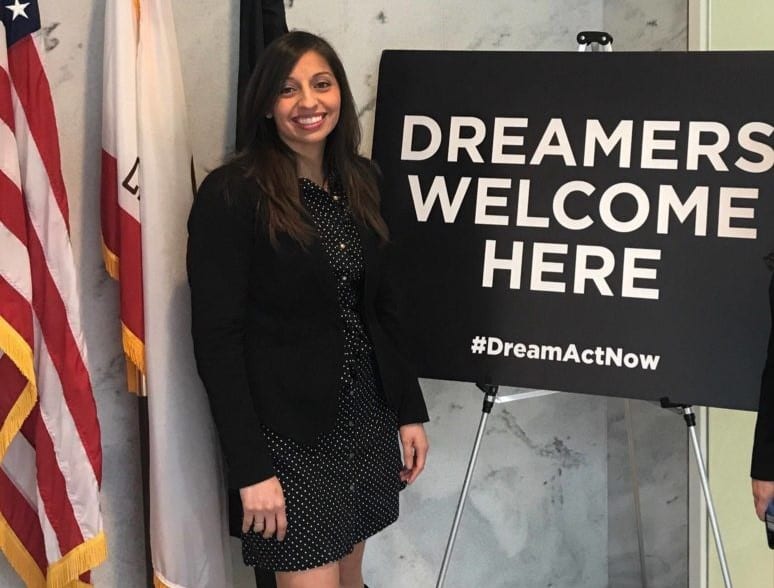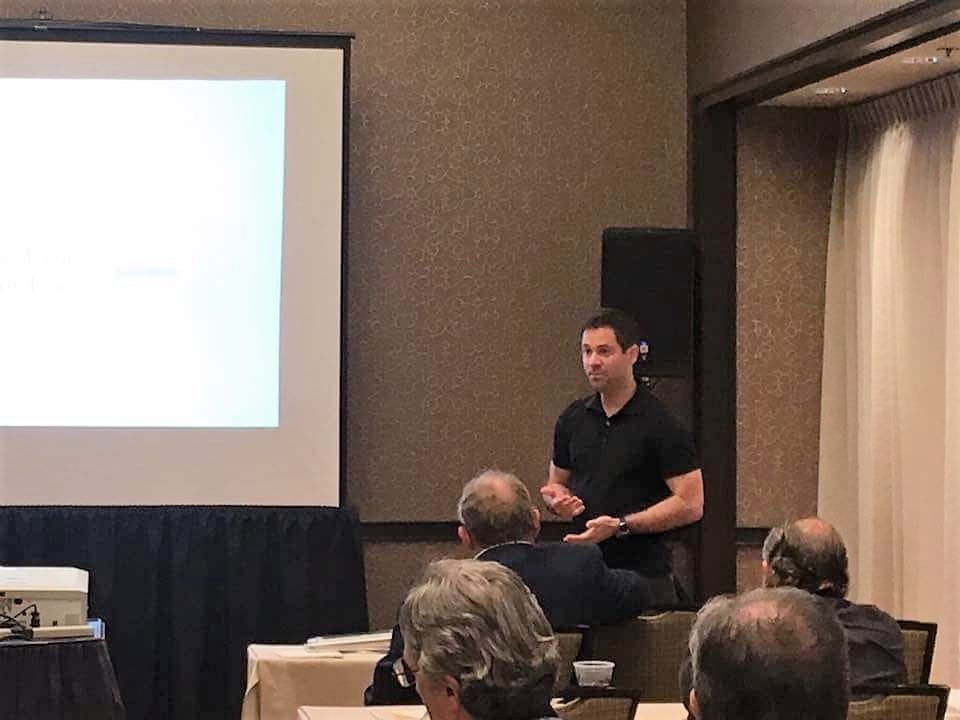KARNES COUNTY, Texas – The Karnes County Residential Center is a difficult place to engage in the art of rhetoric.

Lorena Rivas
Yes, implementing persuasion is a daunting task to say the least at the Karnes County Residential Center which houses mother and child ICE (Immigration and Customs Enforcement) detainees and serves as an asylum detention facility for female asylum seekers.
Nevertheless, Fry & Elder’s Lorena Rivas rolled up her sleeves and set out for Karnes County earlier this summer to lend a helping hand and some much-needed legal and, to some degree, emotional support to those seeking asylum.
Rivas supervised a group of 15 law students from the University of Tulsa – two of which included Fry & Elder interns Elissa Stiles and Elijah Johnson – and volunteered at the detention facility.
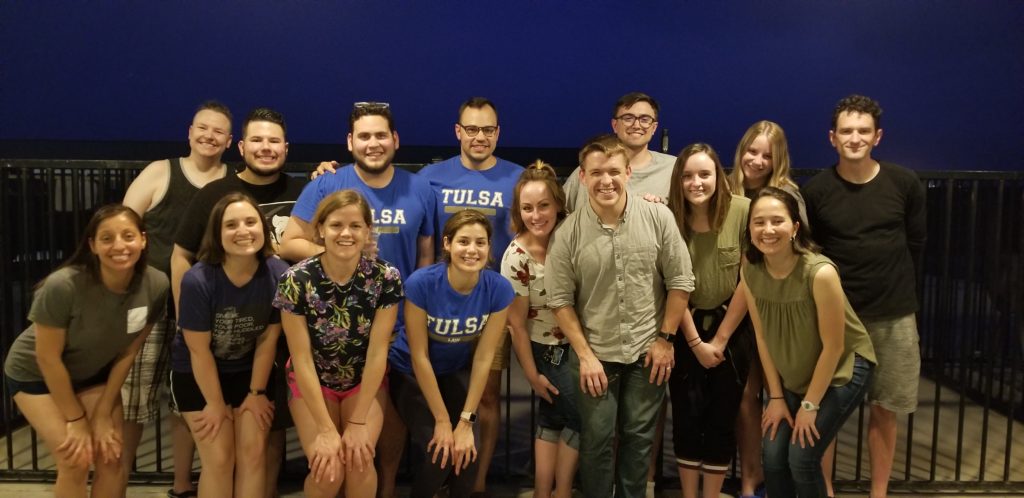
Stiles and Johns spent five days between Karnes County and San Antonio where they assisted asylum seekers who have been released.
Needless to say, the conditions, attitudes and behavior Rivas experienced and observed from both the asylum seekers and correction center officers were chilling, disturbing and rewarding on many levels.
“It was an experience I won’t ever forget,” Rivas said. “I mean, if you spend any time there, you can’t help but become overwhelmed with a multitude of emotions.”
Rivas documented her experiences at Karnes County with a series of daily themed and content-rich Facebook posts. In those, it was evident the huge need there is for immigration reform and accountability.
Her first post highlighted the scene and situation at Karnes in which she and other legal volunteers had to endure a 6-hour wait before they were able to meet with detainees. She equated the scene to that of a “Sh*t Show” and added this in her initial post:
“It’s a huge compound … It was clear the DHS administration is either incompetent on how to handle logistics or is purposely trying to hinder the detainees’ access to legal representation. It’s probably both … The detention facility’s visitation rules are just asinine. These people as asylum seekers not criminals.”
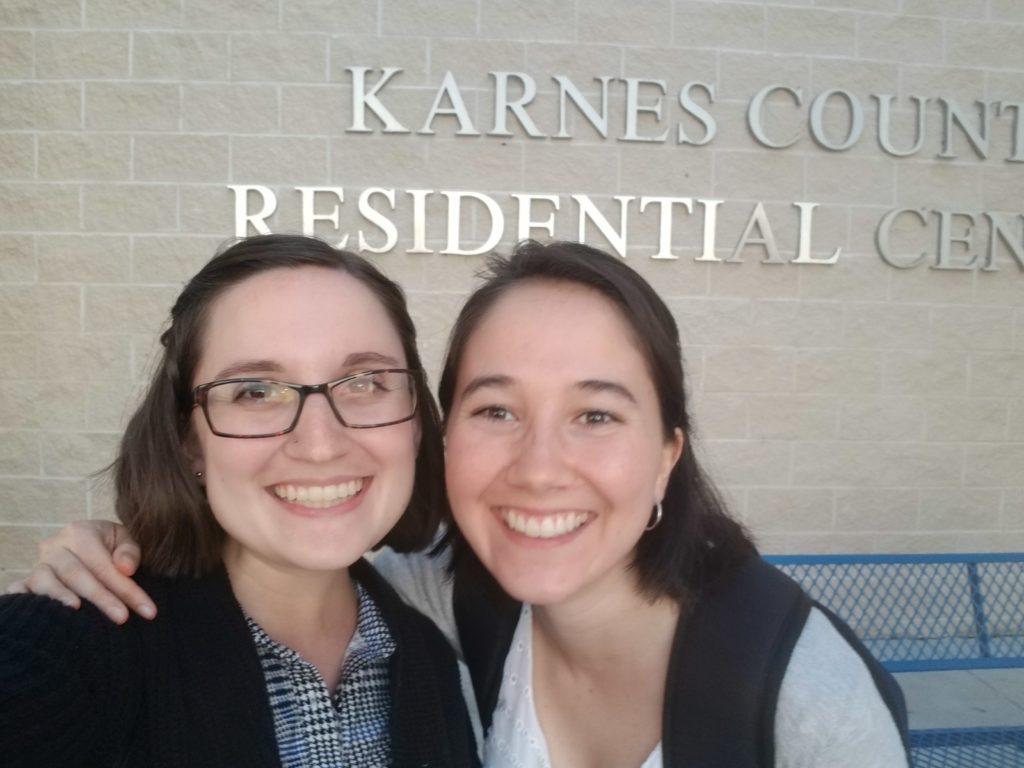
While on the second day Rivas and the students were able to meet with the detainees without having to wait 6 hours, the conditions didn’t necessarily improve as she heard a detention officer say five times that 14 volunteers trying to assist 700 women was too many.
As she met with the detainees, she asked how they have been treated by officials. Most responded “that they have been treated as reasonable as person detained can be.”
That said, Rivas documented how a lady she spoke to the day before had a much different take. While she was in the Perrera (translates to dog cage or dog pound in Spanish) for 1-3 days after being removed from the Hielera (translates to freezer or cooler in Spanish) after 1-3 days, “she was literally treated like a dog. The Customs & Borders Officers would throw her and the other ladies in the cage their food to the ground, laugh and say: ‘Since you are in cages, you are dogs and should eat off the floors.’”
Still, the day provided satisfaction for Rivas due to the fact that she came into contact with RAICES – a non-profit organization which helps immigrants.
As Rivas said,
“They do so much stuff to help out immigrants. I admire their dedication to the cause. They are willing to be here every week. I realized on Day 2 that there would be no way I could do this consistently. It’s exhausting to hear stories of struggle, while fighting the administration, and do it for 11 hours, all while munching on snacks and being away from your cell phone. Kudos to the RAICES Warriors!”
As Rivas earlier mentioned, one cannot volunteer at a detention facility like Karnes and not eventually become overwhelmed with a tidal wave of emotions.
However, Rivas’ biggest takeaway from one day was seeing two women get released from custody.
“Yay! We are successful at times,” Rivas wrote. “I also got the feels seeing a lady see her family in the visitation area. She embraced affectionately with her daughter and happy tears were shed. Reunifications, even small ones like this one, are positive feelings.”
On her final day at the Karnes County Residential Center, Rivas was asked to take on more of a hands-on role and work on a “special case that needed quick prepping and work since the detainee had an immigration judge (IJ) review the next day.”
Rivas worked with an El Salvadoran client named Marie whose story, though sad and heartbreaking, is not atypical of clients seeking asylum into the United States.
Married at 13, Maria was physically, mentally and sexually abused by her husband.
“She feared that by telling me all this information, he and her adult children would find out and punish her,” Rivas wrote. “… I would love to say that Maria’s story was unique, but I know it’s not. These people go through a lot of horrible conditions in their life and the only hope they have to escape them is to come to America.”
Karnes County Residential Center Experience Offers Life-Changing Perspective on Prominent Tulsa Immigration Lawyer Lorena Rivas
Although Lorena Rivas is less then 10 years into her career as a practicing attorney, there isn’t much the highly-regarded Tulsa immigration lawyer has not observed, experienced or encountered.
The Fry & Elder partner has traveled to Washington D.C. on multiple occasions to meet with state and national legislators to advocate for immigration law reform.
Earlier this year, Rivas won the AILA (American Immigration Lawyers Association) Dreams Contest and delivered a riveting speech at the National Convention in June.
Rivas has also won countless awards and honors, including the 2018 Fern Holland Award and was a 2018 Super Lawyers® selection, but those four days in Karnes County will always deeply resonate inside her.
“It’s hard to put it all into words,” Rivas said. “Volunteering at Karnes was truly an eye-opening experience, but it was one I will always be thankful I was able to experience.”
To speak with a proven and dedicated immigration attorney willing to fight for you, contact Fry & Elder today.
 The Fry & Elder partner and standout immigration attorney captivated and inspired an engaged audience this past Friday night at the
The Fry & Elder partner and standout immigration attorney captivated and inspired an engaged audience this past Friday night at the 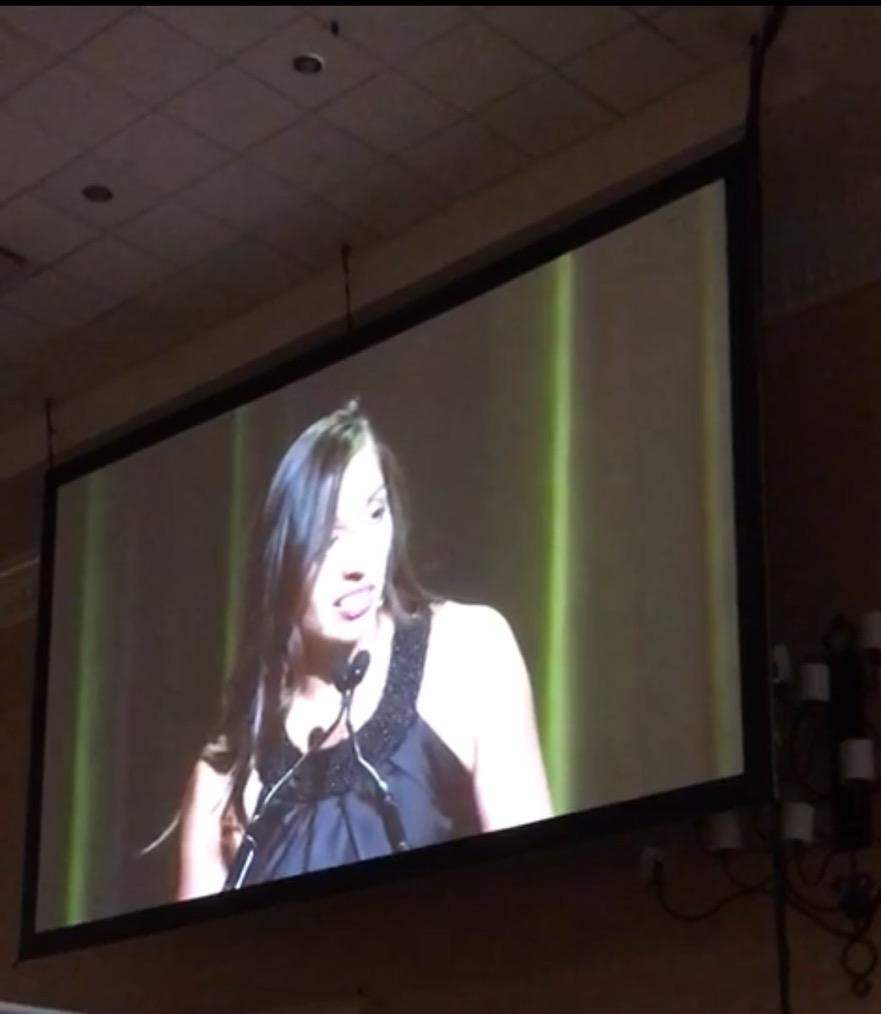 Rivas’ most recent speech employed symbolism and vivid imagery, but the popular Tulsa immigration attorney has proven time and time again that she is a versatile and highly-skilled orator.
Rivas’ most recent speech employed symbolism and vivid imagery, but the popular Tulsa immigration attorney has proven time and time again that she is a versatile and highly-skilled orator.


